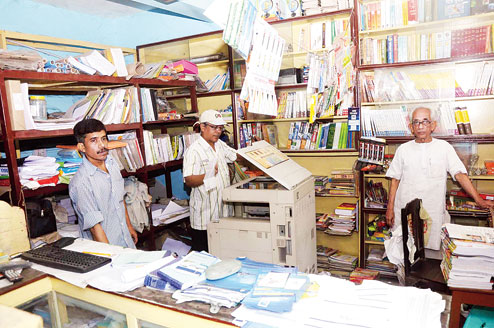
for a contemporary look
Called ‘Indigenous Epistles’, designer Santanu Guha Thakurta’s latest collection is an experiment with traditional fabrics and contemporary looks.
“India is a country with amazing designs and traditions and an emerging fashion industry,” says Guha Thakurta (in picture). “Every time that I wanted to give up, l saw an interesting design, print, painting or textile, and l would start seeing a new collection,” he says.
“The collection here is a combination of hand-painted kalamkari and ajrak block print in natural colours with Bandhej and Shibori. These arts primarily use earthy colours like indigo, mustard, rust, black and green,” says Guha Thakurta.


Originally from Iran, kalamkari or qalamkari (kalam is pen and kari is craftsmanship), developed one of its distinctive styles in India at Machilipatnam in Krishna district, Andhra Pradesh. It was patronised by Mughals and the Golconda sultanate and bears the imprint of the Persian influence. In Machlipatnam, kalamkari is practised as handpainting done on fabrics with a tamarind pen.
Ajrak is a block-printed textile made in Kutch, Gujarat, and is distinguished by its colour and complex geometric and floral patterns. This style of dyeing and printing cloth, traced to Sindh, involves 14 to 16 different methods. The resulting fabric is soft to the touch and its patterns are jewel-like.
Ajrakh is said to signify the universe, says Guha Thakurta: red for earth, black for darkness, white for clouds, blue for the universe itself.


“I am presenting my collection of kalamkari and ajrakh in chanderi, tussar, silk and crepe to make them look more contemporary.
The collection comprises saris, dupattas, womenswear and menswear, combined with embroideries from all over India, such as Nakshi Kantha, Kashmiri and Gotapatti,” says the designer.
• Models: Diksha Katyal, Madhuja Aditya Chaudhuri and Nick Rampal
• Styling: Nisha Desai and Diptarup Das
• Hair and make-up: Prianka Jaiin
• Photographer: Baban Mukherjee
• Creative direction: Nick Rampal










